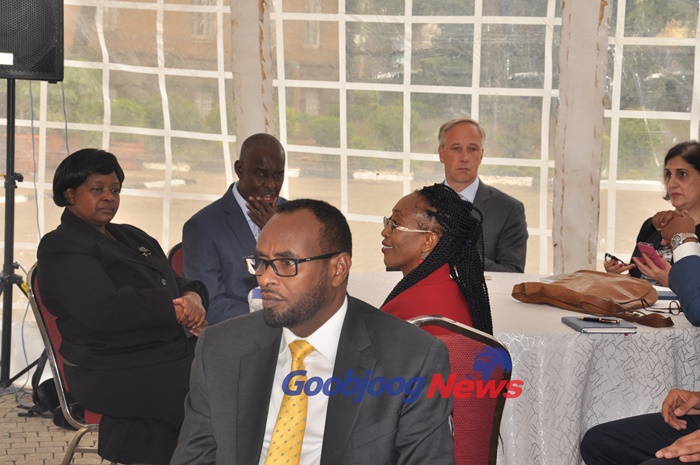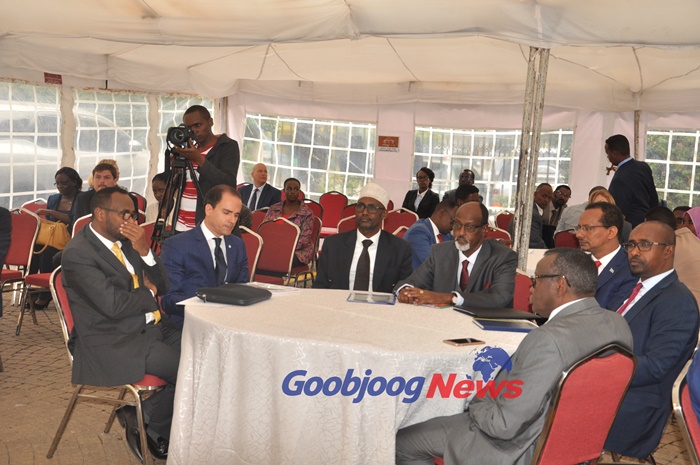Somali judges in three day mock trial at Kenya’s Supreme Court


By Fauxile Kibet
Judges from Somalia Monday kicked off a three day mock trial session at Kenya’s Supreme Court in Nairobi.
The mock trial which is being presided over by Kenyan Supreme Court Judge Ibrahim Mohammed, is aimed at growing capacity of Somali Justice criminal justice practitioners in a bid to enable them conduct efficient trials in respect of International standards trial.
Organizers of the exercise said that the mock trial is also aimed at forging collaboration among Judges, advocates and prosecutors form Kenya and Somalia and also serve as an assessment of the current Somali criminal justice system’s capacity to deliver a human rights-compliant trial on serious crimes.
“This exercise presents a unique opportunity for cross-fertilization of ideas and practices between judges, prosecutors and defence lawyers and sets tone for the emerging paradigm of south-south shared learning and cooperation,” read a statement from the Kenyan Judiciary.

The exercise was organized by partners to the Mogadishu Prison Court Complex (MPCC) project ahead of the official opening of the newly constructed complex and was held under supervision of criminal justice experts from the UN, the UK Foreign and Commonwealth Office, the The International Development Law Organization (IDLO) and the US.
The Nairobi’s Supreme Court room which was identified for the Mock Trial, allows contributors and observers from the international community to attend and assist in the trial.
Unlawful detentions
The exercise comes a few weeks after a global campaign body Human Rights Watch accused Somali Authorities of unlawfully detaining and at times prosecuting in military courts children with alleged ties to Islamist armed group Al-Shabaab.
The report which was titled “It’s Like We Are Always in a Prison’: Abuses Against Boys Accused of National Security Offenses in Somalia,” detailed a series of abuses dating back to 2015 of boys in government custody for suspected Al-Shabaab related offenses.
The report also noted that while the criminal prosecution of children is not common in Somalia, the authorities make use of an outdated legal system to try children in military courts, primarily as adults, for security crimes, including solely for Al-Shabab membership.
“In a justice system that remains heavily reliant on forced confessions, children are not spared. Children in intelligence detention in Mogadishu and Bosasso have been coerced into signing or recording confessions and threatened and on occasion beaten, at times in ways that amount to torture,” the rights body said.